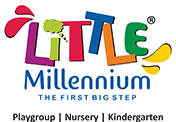
NURTURING SCIENTIFIC INQUIRY IN CHILDREN
This question has plagued me for ages – Why do we wait for a science teacher and a Science period to teach children rudimentary science facts?
To be honest, this attitude has been daunting me ever since I realized as a young adult that I wasn’t made up of the mettle that ‘Science teachers’ are made up of.
Nor was I fortunate enough to be mentored by a senior who could lead me to see the science inherent while teaching a language class.
So I concurred that as a result, the children I teach or have taught so far have probably also not imbibed a spirit of scientific enquiry through me.
What a colossal loss!
If the word ‘science’ were to be broken up into a layman’s term, it simply means a systematic and logical observation or study of certain phenomena, which is based on research and experimentation.
Not a tall order at all!
For long, we have demarcated academics into subjects, like stand-alone Geography, EVS, Maths, Language, Third Language and so on.
While a detailed and focused study of a subject with the aid of a subject matter expert (Subject teacher) is essential, we need to break down the strict boundaries that exist in the school curricula. There is science behind maths and language behind the science.
So what I learnt through my experiment years as a young teacher was that all we need to do is, to bring in this ‘science searching’ attitude into the child’s everyday learning.
Right into the rhymes, stories, history, maths, music and all subjects in fact.
We have been talking about a multi-disciplinary approach for long and the NEP 2020 has now penned it in black and white and that is a great step forward, no doubt.
But we don’t need to wait for the NCF (National Curriculum Framework), Staff meetings and Management meets to bring this attitude to life.
We need to begin right away, bringing out the science in a fun and interesting manner in every concept that we deal with.
Here are some simple strategies and conversations that we can initiate with our children during every Teaching – Learning opportunity:
⦁ When we sing the rhyme – It is Summer, It is summer, Oh so hot, the Educator can steer the conversation to, ‘Why are Summers hot and Winters cold?
Initiate a conversation saying -The Earth is like a ball that revolves around the Sun, so some parts of the Earth will always be facing the Sun and some will be away.
So the part facing the Sun gets a lot of heat energy.
And of course, the teacher can carry the conversation further as she deems fit!
Point in case – Why think that it is too early to talk about Science to young children?
⦁ While singing Wheels of the Bus go round and round, the Educator can steer the conversation to ‘Why are wheels of a Bus round in shape?’
Initiate a conversation saying -The wheels are round to make the bus go faster and roll smoothly. A tyre with edges will make the ride slower and bumpy.
And of course, the teacher can carry the conversation further as she deems fit.
Point in case – Scientific inquiry can also be initiated through rhymes.
⦁ While talking of Seasons, the educator can steer the conversation to, ‘Why do clothes dry faster on a windy Day?’
Begin a simple conversation as to how the wind helps the water vapour move along fast along with moving air, so they dry faster.
And of course, the teacher can carry the conversation further as she deems fit.
Point in case – There is no fixed class or level at which we should begin a talk around condensation/evaporation.
⦁ While talking of Family setups, the educator can steer the conversation to, ‘Why does Grandma forget where she keeps her glasses?’
Begin a simple conversation as to how with age certain muscle functions slow down and the brain also needs exercise to keep fit. So children must play puzzle games, memory games etc with their grandparents to keep them healthy.
And of course, the teacher can carry the conversation further as she deems fit.
Point in case – Even the Socio-Emotional concepts can nurture scientific inquiry thereby leading to a better understanding of our value systems.
⦁ While talking about Food, the educator can steer the conversation around to, ‘Why does everyone love chocolate?’
Initiate a simple conversation as to how eating chocolates releases the feel-good hormones. But since it has high sugar content, we should eat other food and fruits that also release feel-good hormones like crispy apples, almonds & walnuts, cherry tomatoes or even a glass of milk!
And of course, the teacher can carry the conversation further as she deems fit.
Point in case – If children see the science behind habit formation, they are likely to develop better habits during Formative years.
⦁ While talking about Maths & money, the educator can steer the conversation around, ‘Why are coins mostly round in shape?
Initiate a simple conversation by saying that round shape coins are easier to mint and when they change hands from vendor to customer, the chance of injury is lesser as the round coin has no sharp edges.
And of course, the teacher can carry the conversation further as she deems fit.
Point in case – Aha! Maths & Science are so closely intertwined!
So I concluded long ago, that cultivating a scientific inquiry mindset requires everyone – parents, teachers and guardians, to get down to such conversations.
It is not rocket science at all.
And it is not the job of the Science Teacher alone!
